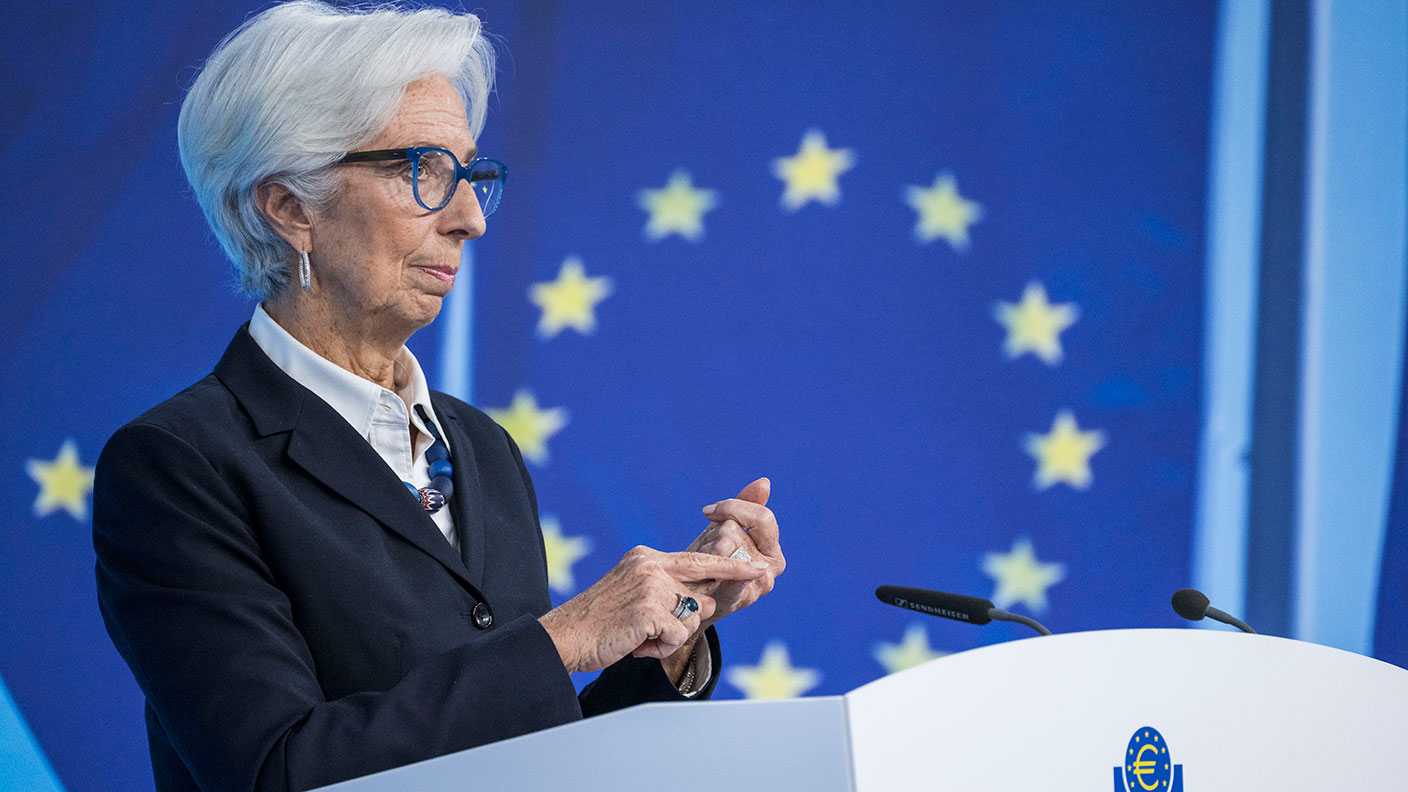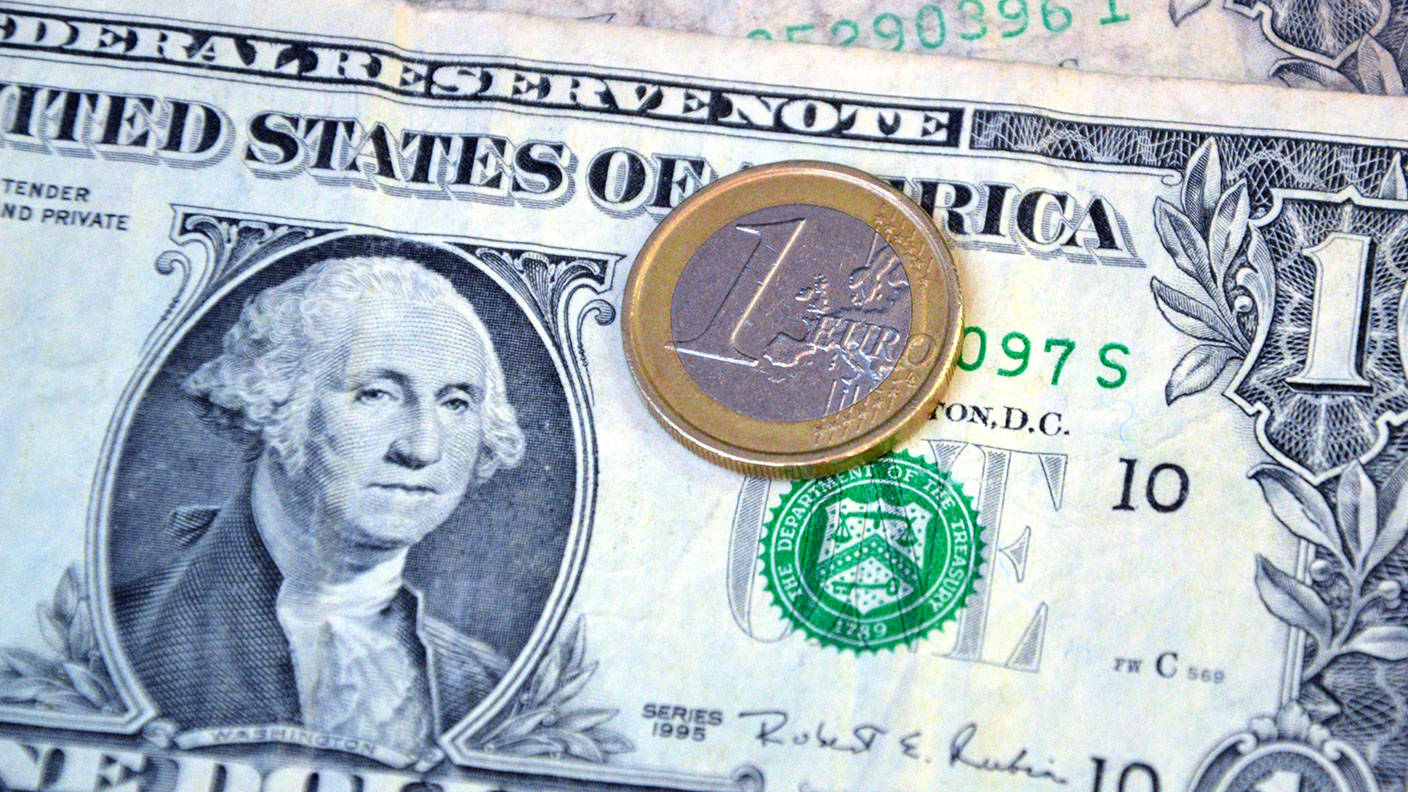Gold’s rally should continue
Matthew Partridge looks at where the gold price is heading next, and what that means for your online trading.

Get the latest financial news, insights and expert analysis from our award-winning MoneyWeek team, to help you understand what really matters when it comes to your finances.
You are now subscribed
Your newsletter sign-up was successful
Want to add more newsletters?

Twice daily
MoneyWeek
Get the latest financial news, insights and expert analysis from our award-winning MoneyWeek team, to help you understand what really matters when it comes to your finances.

Four times a week
Look After My Bills
Sign up to our free money-saving newsletter, filled with the latest news and expert advice to help you find the best tips and deals for managing your bills. Start saving today!
Last year saw a lot of volatility in the price of gold. After a dramatic surge at the start of 2016, the gold price eventually peaked at more than $1,350 an ounce by July. It then plunged in the aftermath of the US election, giving up a large part of the gains, as it fell to a low of $1,128 in mid-December. It has since rallied to $1,221. Naturally, the big question on everyone's mind is whether this recovery will continue especially in light of expectations that Federal Reserve chair Janet Yellen may hike interest rates in March (which would make gold relatively less attractive).
However, I'm not so sure that a rate rise is such a certainty. President Donald Trump has staked his future on returning jobs to the US. Keeping interest rates low, both to stimulate the economy and to prevent the dollar from growing too strong, is a key part of this. Trump has already repeatedly slammed both China and Europe for "currency manipulation" making their currencies artificially weak. Treasury Secretary Steven Mnuchin paid lip-service to the idea of a strong dollar in his recent confirmation hearings, but he has also gone on record as saying that he doesn't want it to get too strong.
At the same time, there's a chance that Brussels could also loosen monetary policy, especially since the economic recovery in the eurozone remains extremely fragile. The ongoing Greek crisis and the upcoming elections mean that European Central Bank governor Mario Draghi knows he has little room for error. Even if Germany's Angela Merkel is re-elected in the autumn (which is by no means the certainty that it once seemed), it looks as though her hardline finance minister Wolfgang Schuble may be for the chop, removing one of the most influential inflation hawks.
MoneyWeek
Subscribe to MoneyWeek today and get your first six magazine issues absolutely FREE

Sign up to Money Morning
Don't miss the latest investment and personal finances news, market analysis, plus money-saving tips with our free twice-daily newsletter
Don't miss the latest investment and personal finances news, market analysis, plus money-saving tips with our free twice-daily newsletter
If more money printing does take place in Europe it should also boost gold. Then there's the risk that Trump's insistence on renegotiating trade deals could provoke a global trade war. This would hit growth, forcing central banks around the world to turn on the printing presses, and would also boost demand for gold as a safe-haven asset. Even if Trump doesn't act on his own, the Republican-controlled Congress is eager to make major changes to corporate taxation, which could be seen as a backdoor protectionist measure.
In short, there are many reasons for the gold rally to continue. So I'd suggest buying at the current price of $1,221. I'd set a stop-loss at $1,128, the December low, and I'd take profits at $1,350. At £7 per $1 move (although clearly your stake doesn't have to be that high), this gives a downside of £653, and upside of £900.
Finally this week, an update on my previous trading idea. In the 20 January issue, I suggested going long Brent crude at $55.43, with a stop-loss at $48.50, and a take-profit at $65. The trade is in profit by about £50 (at a stake of £1 per $0.01).
Spread betters vs the regulators
The Financial Conduct Authority (FCA), the UK's financial regulator, looks increasingly likely to announce a significant increase in regulation after its consultation on CFDs and spread betting closes on 7 March. As a result, providers are taking steps to deal with the clampdown before it takes place. Some are trying to persuade the FCA to soften the blow by agreeing their own industry-wide rules."A draft code has been put together by a new industry lobbying group," reports the Evening Standard. The idea is to "reflect how we act as an industry, treating customers fairly and setting out standards we are going to play by".
As well as self-regulation, firms also plan to change the range of products that they offer voluntarily. For example, in a statement accompanying its third-quarter figures, CMC Markets said that it will be developing its products aiming to "limit clients' downside risk". This will include "the launch of a limited risk account" and a commitment to keep offering "guaranteed stop-losses" to clients. IG Index has also stopped offering binary markets that run for less than five minutes to new customers, although existing customers will still be allowed to access them.
Some firms reckon that the potential impact of stricter rules has been overstated. London-listed Plus 500, which operates in Israel, but gets around 20% of its business from the UK, argued in its 2016 earnings report that regulators are more concerned with targeting "the long tail of smaller industry operators, cross-border service providers, unauthorised operators and investment scams". In fact, it says that increased regulation could benefit the existing, more dominant companies in the sector, because it will raise barriers to entry and encourage consolidation, leading to "a smaller number of larger operators".
Financial binaries and why you should avoid them
Many spread-betting firms offer financial binary betting. Unlike traditional spread bets, binaries only have two outcomes: either the event takes place and the bet expires at 100, or it doesn't and the bet expires at 0. The payout you get is the difference between the price at which you buy (or sell) and the final value, multiplied by your stake. As with any spread bet, the price moves up and down before expiry, and you can close out your position at any time.
For example, let's say you bet on the FTSE 100 closing above 7,300 before the end of the week for £2 a point. The spread is quoted at 50-55. If the FTSE 100 closes at 7,350, you would make (100-55) £2 = £90. However, if it expired at 7,250 you would lose (55-0) £2 = £110. If the FTSE 100 was at 7,200 a day before expiry the price might have fallen to 20-25, giving you the option of closing your position at 20, taking losses of £70.
The most popular type of bet is an up/down bet, with the market expiring above or below a certain level. However, some firms offer more exotic bets. These include Ladder (the distance from a certain level); One-Touch (reaching a certain level); Hi-Lo (the difference between the day's high and the day's low); and Tunnel (staying within a particular range). Many firms also allow you to choose the range.
Financial binaries are currently under the spotlight because the FCA thinks they are closer to gambling than investment. Whether you agree with its arguments or not, the effective spreads on these bets are so large that unless you have some special market insight, you're better off avoiding them completely.
Get the latest financial news, insights and expert analysis from our award-winning MoneyWeek team, to help you understand what really matters when it comes to your finances.

-
 How a ‘great view’ from your home can boost its value by 35%
How a ‘great view’ from your home can boost its value by 35%A house that comes with a picturesque backdrop could add tens of thousands of pounds to its asking price – but how does each region compare?
-
 What is a care fees annuity and how much does it cost?
What is a care fees annuity and how much does it cost?How we will be cared for in our later years – and how much we are willing to pay for it – are conversations best had as early as possible. One option to cover the cost is a care fees annuity. We look at the pros and cons.
-
 The challenge with currency hedging
The challenge with currency hedgingA weaker dollar will make currency hedges more appealing, but volatile rates may complicate the results
-
 It's time to back the yen, says Dominic Frisby
It's time to back the yen, says Dominic FrisbyThe Japanese yen has been weak for a long time, says Dominic Frisby. That may soon change.
-
 Investors dash into the US dollar
Investors dash into the US dollarNews The value of the US dollar has soared as investors pile in. The euro has hit parity, while the Japanese yen and the Swedish krona have fared even worse.
-
 Why a strong dollar hurts – and what you can do about it
Why a strong dollar hurts – and what you can do about itAnalysis The US dollar is at its strongest level in 20 years. That’s bad news for most investment assets, says John Stepek – here’s why
-
 Could a stronger euro bring relief to global markets?
Could a stronger euro bring relief to global markets?Analysis The European Central Bank is set to end its negative interest rate policy. That should bring some relief to markets, says John Stepek. Here’s why.
-
 HubSpot: a tech stock set to tumble
HubSpot: a tech stock set to tumbleTips US tech stocks have had a fantastic couple of years. But this year is unlikely to be so bullish for high-fliers that can’t turn big profits.
-
 What does the future hold for central bank digital currencies?
What does the future hold for central bank digital currencies?Briefings Many of the world's central banks – including the Bank of England – have expressed an interest in creating their own digital currencies. Shivani Khandekar looks at the state of play in central bank digital currencies.
-
 A weakening US dollar is good news for markets – but will it continue?
A weakening US dollar is good news for markets – but will it continue?Opinion The US dollar – the most important currency in the world – is on the slide. And that's good news for the stockmarket rally. John Stepek looks at what could derail things.